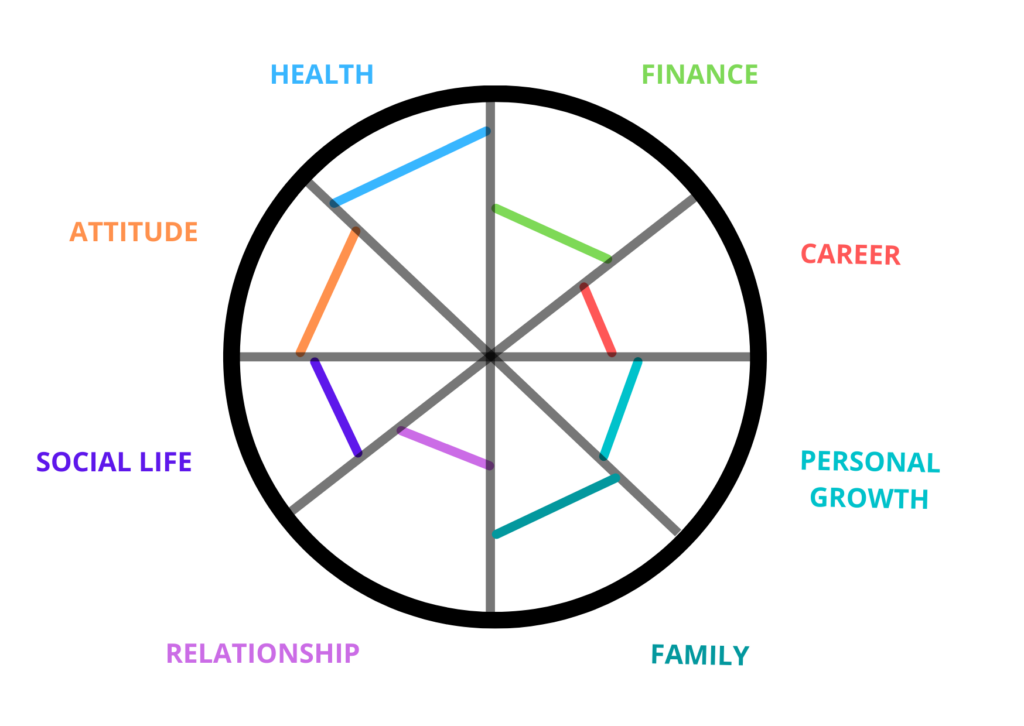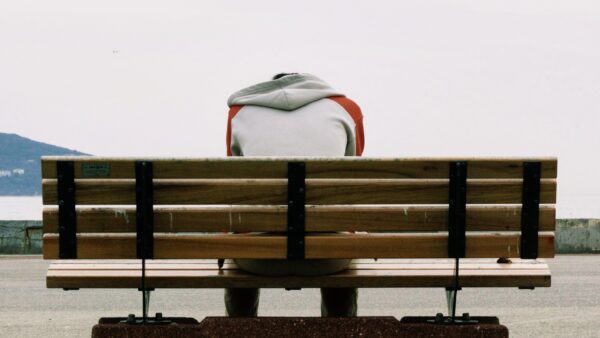12.1 Introduction
A peer support agent helps people experiencing homelessness, out of a genuine desire to be a companion on their way to their full independence and responsibility for their own lives. This important task requires a support agent to be in a good shape themselves and serve as an example of a person who knows how to take care of themselves.
The following chapter provides the professional with basic knowledge in the area of self-care and well-being at work together with the ways of presenting it to the future peer supporters.
12.2 Learning objectives
In this unit the learners will
- Learn how to conduct training in the field of self-care.
- Learn about how to get better self-knowledge
- Learn how to effectively analyze areas of one’s own life in terms of satisfaction
- Acquire knowledge about the various methods of daily self-care.
12.3 Self-care and well-being at work
When we help other people, the boundaries between work and private life can often get blurred. For the homeless persons we are often the only people with whom they can develop a closer relationship or with whom they may have meaningful conversation. Therefore, some of them may reach out for us with no regard to the day of the week or time of the day. Modern technologies make it very easy. It is us who must set the necessary boundaries and it will be an easier task provided we have done our “homework” with regards to the self-care.
When approaching the subject of self-care, one has to get rid of stereotypes and understand that investing in oneself doesn’t mean being selfish. In fact, by taking care of oneself a person will be better able to take care of other people. He/she will be in a better shape- both physically and emotionally- and will have acquired practical knowledge that will help her to guide others in their self-care.
Another important consideration is that taking care of oneself means being good but not lax to oneself in the mental, physical and spiritual sphere.
The simplest forms of everyday self-care:
Physical sphere: getting sufficient sleep and rest, healthy food, physical exercise, body care;
Mental sphere: being conscious and responsive to one’s own needs and emotions, maintaining an observant attitude towards oneself – a measure of self-distance, maintaining good contact with family and friends;
Spiritual sphere: having a positive view of the order of things (sense of life, right and wrong, life and death etc.), contact with nature, prayer/meditation.
There is a need to find a proper balance between the above spheres. Taking care of oneself is a way of building inner peace in the midst of anxiety and rush.

Self-knowledge and self-distance
To be ready to work with other people, one should first get to know oneself better. Working with other people can be very demanding. Effectively helping others largely depends on helper’s positive and distanced attitude towards themselves and this requires self-knowledge.
Understanding one’s own mind in a web of negative beliefs
Beliefs about oneself, about one’s work, as well as about those under one’s care have powerful influence over the person’s performance at work and care. The human mind often generates beliefs and thoughts that are not helpful but, to the contrary, block the individual’s personal potential and, in consequence, the potential of their interactions with others. Examples include the beliefs like: «This work is leading nowhere», «People do not like the way I am», «I’m not good enough for this», “They cannot be helped”. Watching one’s own thoughts carefully allows one to distance oneself from negative beliefs and consequently from negative patterns of behavior. Then they can be substituted by realistic positive beliefs.
Everyone has his/her own set of negative beliefs. They originate from childhood experiences and the environment in which the person has lived. Negative beliefs are the soil on which low self-esteem thrives. A person with low self-esteem can hardly be helpful for people who are mostly troubled in the same way. Non-supportive beliefs inhibit the development of the person concerned and influence all those with whom that person comes in contact. It is worth working on these beliefs for one’s own as well for other peoples’ sake.
Low self-esteem and insufficient self-care concern almost all people affected by homelessness. The situation is worsened by prevalent stereotypes about homelessness. Homeless people have heard many times that they are themselves guilty of their situation. They have encountered rejection and faced failure on numerous occasions. Negative experiences, prevalent in their lives, only confirm them in their negative beliefs. They need to realize that these are beliefs, not reality, and that reality will start to change with their beliefs.
In search of the balance, the Circle of Life
Life of every person has various areas, which relate to one’s family life, professional life, social relations, health, personal development etc. The imbalance in life manifests itself in situations in which, for example, by devoting ourselves in excess to work we forget about rest, or when devoting ourselves to the family, we forget about our personal development and fulfillment. The condition for achieving balance in life is being aware of the areas our life consists of and the importance we give to each of them. A well-known Polish psychologist Wojciech Eichelberger compares life to a cake: “Life is like a cake, consisting of several different but deeply interconnected pieces. Each piece is an area that needs to be managed, e.g. sleep, diet, health, exercise, work, relationships, family, spiritual/personal development, passions, entertainment, relaxation. We feel the satisfaction of the self-care when we organize these areas of life in the appropriate scale and volume, and when we have at least a decent level of satisfaction in the most important spheres.»
The Circle of Life is an interesting exercise to make the person take an honest look at the level of satisfaction in different spheres of their live. The “cake” may be different for each person; therefore, the diagram below contains only suggestions. After naming all the equal pieces of the cake, the participant marks on relevant radiuses the level of satisfaction in each area – starting from 1 near the middle, ending with 10 on the outer edge of the cake (see an example below). After connecting the marks in each area, a picture is created of how much of any particular piece of cake is there, and how much is lacking. The result can be an object of individual reflection and possible motivation for planning some shifts in one’s priorities for the future.

Attention has been drawn in the last decades to the relationship between effectiveness at work and a satisfying personal life. Below, we present some resources that one can apply to more effectively take care of oneself— useful in everyday life and in the moments of challenge.
• Cultivating the peace of mind
Peace of mind is the basis for enjoying life and work. While many may think that reaching the state of the peace of mind is unrealistic, few can deny that there is actually much to do about it. The key is to see it as a process rather than a state. Moving ahead in such a process will surely require some courage, some insight and inner distance, some discipline and, perhaps, someone’s assistance, but it is an effort worth taking.
• Being present
It is recommendable to get acquainted with the mindfulness practice, the fundamental assumption of which is to be «here and now». The basic practice of daily mindfulness is relatively simple— it is enough to look at everything that happens to us every day without criticism or judgment, take the reality serenely in as much as possible, and refrain from complaining which far from helping drains our energy. It is distancing oneself from stressful thoughts and emotions— acknowledging them and letting them go, without submitting to them. It is about not worrying about the past or future but focusing on the present in all its richness. It is about asking and/or reminding oneself permanently of what is really important and what is real.
• Cleaning up
Keeping one’s home, room and workplace tidy is an important aspect of taking care of oneself in the everyday life. Taking care of our immediate surroundings is a good first step to self-care. Surroundings can and should have a mobilizing effect on its inhabitants. In the midst of cleaning up and rearranging our spaces we should not forget to think also about our relaxation and rest.
• Working on oneself consistently
Success in life is hardly a matter of chance, but rather of one’s own work. This principle applies both to professional and personal life. By developing our internal competences, we learn to become more aware of our actions, control our level of stress, learn to say no and, generally, communicate better with other people.
• Time management
Time is one of the most precious commodities we have. It is worth learning to respect one’s own, as well as other peoples’ time. Also, it is right to expect such respect from others.
Each person has their own biological clock which marks e.g. the time they work best, the time they need to rest. Time management is also about setting breaks for meals and rest. For many people nowadays, time management is also about limiting media consumption. A practical way to manage one’s time is to keep a calendar of plans and appointments. Using the Eisenhower Matrix can be helpful (see worksheet 4).
• Taking care of health
Good health is important and so worthy of the effort to make positive changes and create positive habits. Every person needs a space and time to relax, enough sleep, a balanced diet and physical exercise.
• Taking care of relationships
Good relations with people are an indispensable part of a meaningful life. They are important at work, and there is no overrating them in private life. The relationships – and concretely the persons on whom they are centered – need our commitment and care. As for relationships at work it is especially important to remember that they wither in an ambience of gossip.
• Developing interests
Thanks to our interests and hobbies, we get to know our potential, develop it, learn about our possibilities. We can effectively disconnect from our work when necessary. They build our motivation and perseverance, help in social contacts. They give us satisfaction and relaxation and make us feel good about ourselves.
• Professional help
All personnel working intimately with people should take advantage of professional support. This could be some form of supervision where a neutral person helps us to get a better insight into the emerging difficulties, and in effect into ourselves. Supervision can be done in a group or individually.

The story of Ella, a Peer Support Agent
The most important and most difficult challenge for Ella was that she took her work home with her. She thought incessantly about her clients. She responded to their needs day and night, also during holidays. This resulted with time in fatigue and lower efficiency. Eventually Ella decided to introduce the following changes in her life routine:
Family and home rituals: Preparing and eating meals together with her family, having fun, and taking a walk in the evening turned out to be very helpful in reducing stress and physical tension. While spending time with her family, Ella responded only to the most urgent calls from work.
Mindfulness on a daily basis: Ella took a supervision where she obtained psychological support. She is trying to be kind and accepting to herself. She takes care to have proper meals, sleep, hygiene of the day: regular meals, sleep, relaxation.
Interests: Developing interests and spending time on them is an effective way of distancing oneself from work in the free time. Ella took to painting and gardening on her balcony.






